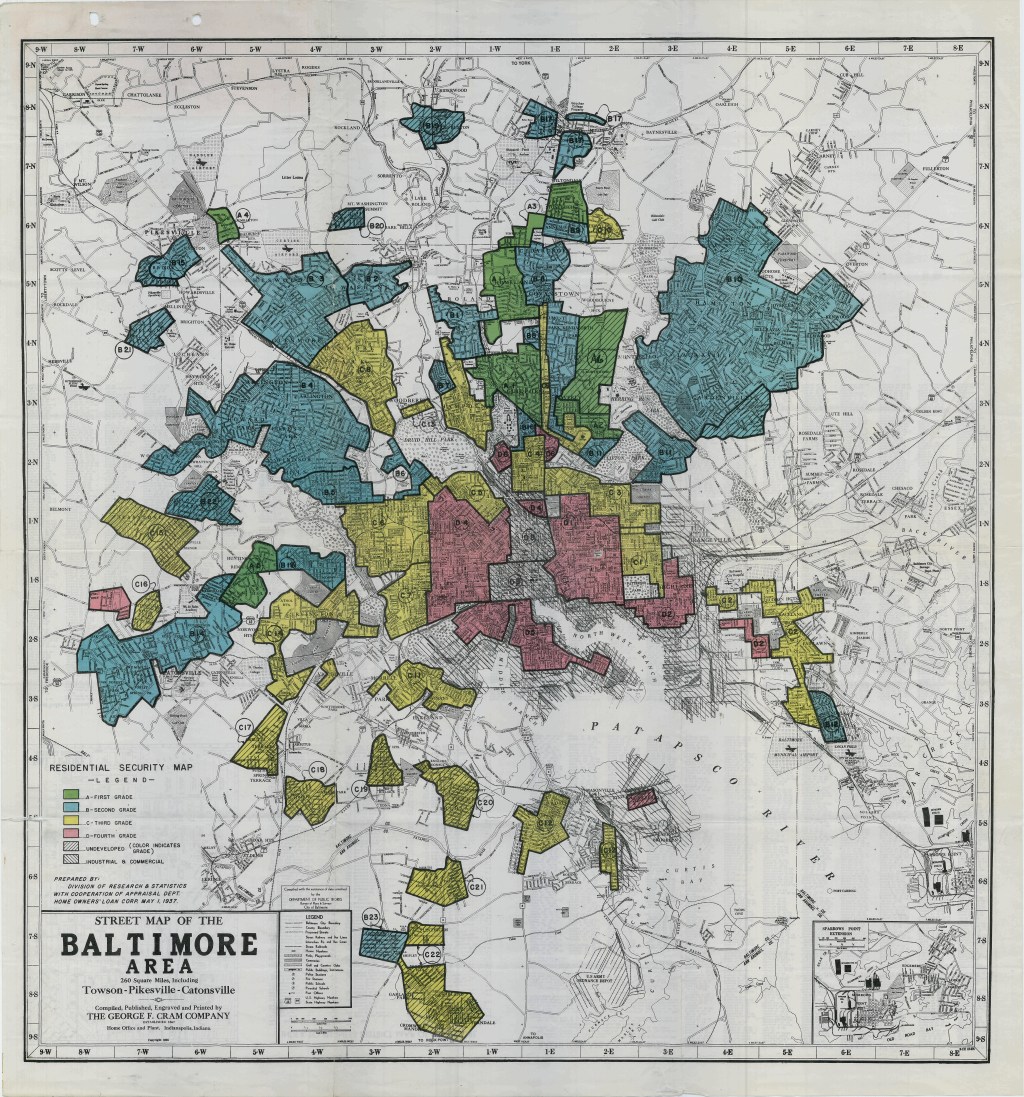In February 2021, the Maryland General Assembly overrode a veto by former Maryland Governor Larry Hogan[1] to pass H.D. 732,[2] making Maryland the first state to impose a tiered tax on annual gross revenue derived from digital advertising services, colloquially called the Digital Sales Tax.[3] These services include “banner advertising, search engine advertising, interstitial advertising, and other comparable advertising services.”[4] The annual tax revenue, projected to be $250 million,[5] will fund the Blueprint for Maryland’s Future,[6] a ten-year plan to reform Maryland’s public education system.[7] The law was later amended to exclude news entities and to include a pass-through provision preventing digital advertisers from passing the tax to customers via fee, surcharge, or line-item.[8]
The tax rates in H.D. 732 start at 2.5 percent for companies reporting $100.0 million to $1.0 billion in global annual gross revenues and increase incrementally to 10 percent for companies reporting global annual gross revenues above $15.0 billion.[9] Thus, this tax largely affects big tech companies and has received pushback as a penalty for large and small businesses within and beyond Maryland.[10]
In October 2022, the Circuit Court for Anne Arundel County granted summary judgment for plaintiffs Comcast Corporation and Verizon Communication Inc. subsidiaries, holding that the tax was unconstitutional.[11] After timely appeal, in July 2023, the Supreme Court of Maryland granted certiorari and vacated the circuit court’s ruling, finding that the circuit court lacked jurisdiction because appellees failed to exhaust administrative remedies before filing suit.[12]
Meanwhile, in February 2021, the U.S. Chamber of Commerce, NetChoice, and the Computer and Communications Industry Association filed suit in U.S. District Court, alleging that the tax violated the Internet Tax Freedom Act, the Commerce Clause, the Due Process Clause, and the First Amendment.[13] The district court dismissed the first three claims with prejudice under the Tax Injunction Act, which prevents federal courts from barring state tax collection where state law provides a remedy.[14] After the circuit court’s ruling, the district court also dismissed the First Amendment claim as moot.[15] The Supreme Court of Maryland, however, vacated the circuit court’s judgment while the appeal was pending in the Fourth Circuit.[16]
In January 2024, the U.S. Court of Appeals for the Fourth Circuit affirmed the district court’s dismissal of the first three claims but remanded to dismiss without prejudice.[17] The Fourth Circuit also vacated and remanded the First Amendment claim, which challenges the pass-through provision as a content-based regulation of speech, to the district court.[18] There, the court will decide whether this specific provision restrains free speech and “passes constitutional muster.”[19]
The Free Speech Clause in the First Amendment of the Constitution establishes that “Congress shall make no law respecting an establishment of religion, or prohibiting the free exercise thereof[.]”[20] Speech regulations are facially content-based when dependent on the substance of that speech, including certain subject matter or viewpoints.[21] Such content-based laws that restrict speech are “presumptively unconstitutional.”[22] However, the court may apply strict scrutiny to determine whether a content-based speech regulation passes constitutional muster.[23] Strict scrutiny requires the government to demonstrate that the regulation at issue is the “least restrictive means” to advance a “compelling” government interest.[24] Maryland will need to meet this demanding standard of review for the digital ad tax to survive.
Maryland’s digital ad tax is the first of its kind, and other states are replicating similar legislation.[25] While state litigation has resolved, federal litigation remains ongoing. Furthermore, because the other federal claims have been dismissed without prejudice,[26] there could be future litigation. Should the court find Maryland’s digital ad tax unconstitutional, similar taxation in other states may be in jeopardy.[27] This could also include taxation on the sale of other intangible, digital goods and services.
[1] Danielle E. Gaines, With Override Votes, Senate Passes Landmark Education Reform and Digital Ad Tax Bills Into Law, Md. Matters (Feb. 12, 2021), https://www.marylandmatters.org/2021/02/12/with-override-votes-senate-passes-landmark-education-reform-and-digital-ad-tax-bills-into-law/.
[2] See H. D. 732, 2020 Gen. Assem., 441st Sess. (Md. 2020).
[3] Bryan P. Sears, Top Court: Challenge to Digital Ad Tax Was an “End-Run” Around Required Appeals Process, Md. Matters (Jul. 12, 2023), https://www.marylandmatters.org/2023/07/12/top-court-challenge-to-digital-ad-tax-was-an-end-run-around-required-appeals-process/; see also Jason R. Brown, The Maryland Digital Advertising Services Tax and the Expanding Map for Digital Taxes, ABA (June 10, 2021), https://www.americanbar.org/groups/taxation/publications/abataxtimes_home/21spr/21spr-pop-brown-md-digital-tax/?login.
[4] H. D. 732, supra note 2.
[5] Sears, supra note 3.
[6] H. D. 732, supra note 2.
[7] Gaines, supra note 1.
[8] See S. B. 787, 2021 Gen. Assem., 442nd Sess. (Md. 2021).
[9] H. D. 732, supra note 2.
[10] Danielle E. Gaines, Tech Groups, U.S. Chamber Sue to Halt Maryland Digital Ad Tax, Md. Matters (Feb. 18, 2021), https://www.marylandmatters.org/2021/02/18/tech-groups-u-s-chamber-sue-to-halt-maryland-digital-ad-tax/; see also Cooper Gerus, Digital Ad Tax or “Digital Fad Tax”: Will Maryland’s Novel Digital Ad Tax Withstand Legal Scrutiny?, 51 U. Balt. L.F. Blog (May 24, 2021), https://ublawforum.com/2021/05/24/digital-ad-tax-or-digital-fad-tax-will-marylands-novel-digital-ad-tax-withstand-legal-scrutiny/.
[11] Bryan P. Sears, State Supreme Court Overturns Digital Ad Tax Ruling, Md. Matters (May 9, 2023), https://www.marylandmatters.org/2023/05/09/state-supreme-court-overturns-digital-ad-tax-ruling/; see also Emily Thompson, Hot Topic, No Taxation if There Is Discrimination: Maryland’s Trailblazing Digital Advertisement Tax Struck Down as Unconstitutional, 53 U. Balt. L.F. Blog (Jan. 10, 2023), https://ublawforum.com/2023/01/10/no-taxation-if-there-is-discrimination-marylands-trailblazing-digital-advertisement-tax-struck-down-as-unconstitutional/.
[12] Sears, supra note 11; see also Comptroller of Md. v. Comcast of Cal., 484 Md. 222, 251 (2023).
[13] Chambers of Com. of United States v Franchot, 595 F.Supp.3d 423, 431 (D. Md. 2022) vacated in part,Chambers of Com. of United States v. Lierman, 90 F.4th 679 (4th Cir. 2024).
[14] See Franchot, 90 F.4th at 437-38.
[15] Id. at 437.
[16] Comptroller of Md. v. Comcast of Cal., et al., 484 Md. 222 (2023).
[17] Lierman, 90 F.4that 682-83.
[18] Id. at 683.
[19] Gaines, supra note 1.
[20] U.S. Const. amend. I.
[21] Victoria L. Killion, Cong. Rsch. Serv., IF12308, Free Speech: When and Why Content-Based Laws Are Presumptively Unconstitutional 1 (2023).
[22] Reed v. Town of Gilbert, 576 U.S. 155, 163 (2015).
[23] Sable Commc’ns of Cal. v. FCC, 492 U.S. 115, 126 (1989).
[24] Id.
[25] Brown, supra note 3.
[26] Chambers of Comm. of United States v. Lierman, 90 F. 4th at 682-83.
[27] Brown, supra note 3.

Jessica Kweon is a second-year law student at the University of Baltimore School of Law and a first-year staff editor for Law Forum. She received her Bachelor of Arts in Psychology and minors in Biology and Writing from the University of Maryland, Baltimore County. Jessica has interned for the Honorable Judge Douglas R. M. Nazarian of the Appellate Court of Maryland, the Honorable Judge Mary M. Kramer of the Circuit Court for Howard County, and the Honorable Judge Catherine Chen of the District Court for Baltimore City. In law school, Jessica is also a member of the Jeffrey G. Miller National Environmental Law Moot Court team and Vice President of the Asian Pacific American Law Student Association





Leave a comment